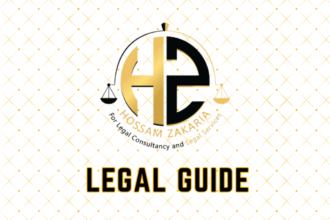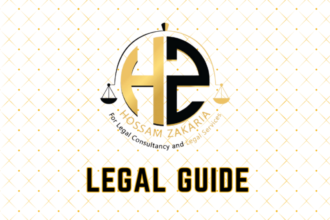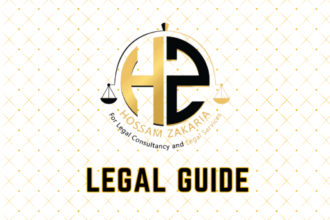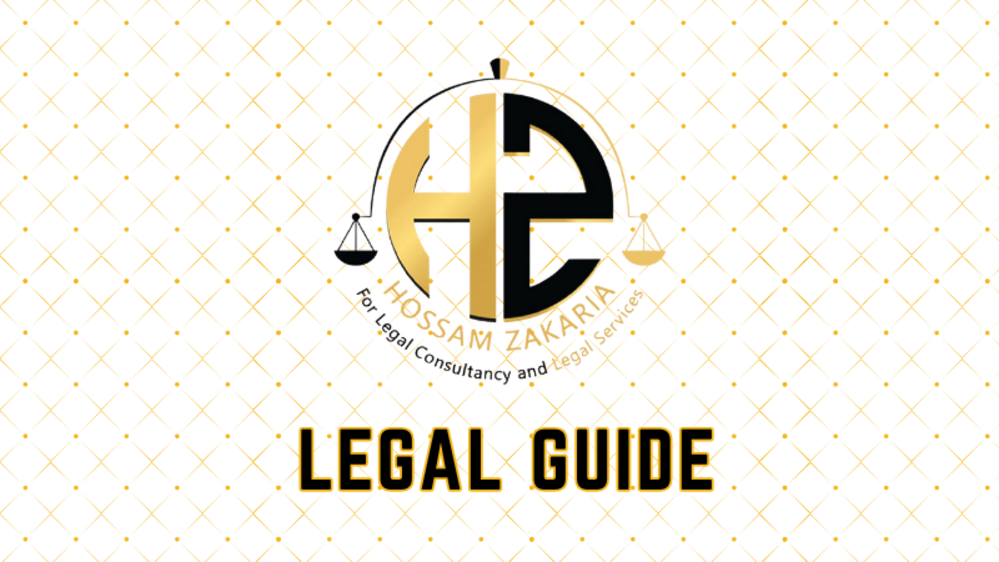Introduction
The proliferation of artificial intelligence (AI) across the Middle East has dramatically reshaped the landscape of business operations, regulatory requirements, and risk management—particularly for UAE businesses expanding or operating within the borders of Qatar. As we move toward 2025, significant legislative and regulatory shifts have placed increasing emphasis on the principles of AI transparency and explainability. These elements are no longer just technical best practices; they are emerging as legal imperatives affecting cross-border operations, data processing, and organizational accountability.
For UAE entities interacting with Qatari markets or leveraging AI technologies involving Qatari data subjects, understanding AI transparency and explainability under Qatari law has become not only prudent but essential. With the surge of new laws, decrees, and regulatory updates—especially in the wake of the Qatar Personal Data Privacy Protection Law (Law No. 13 of 2016) and accompanying regulatory guidance—business leaders and legal teams must reassess compliance paradigms. This article delivers a comprehensive legal analysis of the regulatory landscape in Qatar surrounding AI transparency and explainability, their implications for UAE-based entities, and practical consultancy advice for organizational strategy and risk mitigation.
Table of Contents
- Context and Regulatory Landscape
- Legal Framework: Qatari Law on AI Transparency and Explainability
- Detailed Provisions and Official Sources
- Impact and Risks for UAE Businesses
- Effective Compliance Strategies
- Case Studies and Hypothetical Scenarios
- Comparative Table: Qatari and UAE AI Laws
- Conclusion and Forward-Looking Perspective
Context and Regulatory Landscape
The Convergence of AI and Regulatory Reform in the Gulf
AI has emerged as a dominant economic and regulatory driver across the GCC. Both Qatar and the UAE have pursued ambitious national strategies rooted in AI adoption: Qatar with its National AI Strategy, and the UAE with the UAE Artificial Intelligence Strategy 2031. Regulatory bodies are now focusing on the risks, ethics, and legal accountability inherent in AI—particularly in respect to transparency (making AI decision-making processes open and understandable) and explainability (articulating the logic and rationale behind AI outputs).
AI Regulations: A Dual-Lens for Cross-Border Compliance
For UAE businesses, AI legal compliance increasingly involves a dual lens: both the evolving domestic landscape (as captured in federal decrees and Cabinet resolutions like Cabinet Resolution No. 23 of 2022 on Digital Security), and the external demands imposed by key trading partners such as Qatar. Cross-border data transfers, joint ventures, and digital products mean UAE organizations must stay abreast of legal requirements in both jurisdictions. Failure to comply with either set of requirements can result in severe business, legal, and reputational risks.
Legal Framework: Qatari Law on AI Transparency and Explainability
Overview of Key Legal Instruments
Central to Qatar’s regulatory approach are two core documents:
- Law No. 13 of 2016 Concerning Personal Data Privacy Protection (“Qatar PDPL”); and
- Qatar AI National Strategy and Regulatory Guidance issued by the Ministry of Transport and Communications and the Qatar National Artificial Intelligence Committee.
In line with international trends, the Qatar PDPL establishes strict obligations for entities—including foreign companies with operations or data processing relating to Qatar—to ensure personal data protection, transparency about automated processing, and the right of individuals to access information about decisions affecting them. Complementary regulatory guidance underscores the importance of AI transparency and explainability to minimize algorithmic bias, improve accountability, and foster public trust.
Key Provisions Relevant to UAE Businesses
Qatar’s legislative instruments define several obligations that directly impact UAE companies operating in or processing Qatari data:
- Obligation to Inform Data Subjects: Article 7 of the PDPL requires organizations to provide clear, accessible information to data subjects whose personal data is used in automated processing, including AI-driven decision-making.
- Automated Decision-Making Rights: Affected individuals have the right to request information about—and object to—the logic, significance, and consequences of automated decisions (Art. 9, PDPL).
- Transparency in AI Models: Regulatory guidance stipulates AI deployments must be transparent, with sufficient documentation enabling external verification and audit.
Detailed Provisions and Official Sources
Analysis of Legal Text and Guidance
Official sources, including the Qatari Ministry of Transport and Communications and the Qatar Government Portal, emphasize specific, actionable transparency and explainability standards:
- Data Subject Notification: Notification must cover the nature and purpose of AI processing, legal basis, categories of data involved, potential recipients, and the impact of AI-driven decisions.
- Right to Explanation: Upon request, organizations must provide a rationale for AI decisions that significantly affect individuals, detailing the principal factors that informed the decision.
- Documentation and Auditability: Adequate record-keeping of AI model logic, training data, and decision criteria—a central feature captured in Qatar’s AI regulatory guidance—enables regulatory investigation and audit.
It is noteworthy that while the Qatar PDPL is not AI-specific, its language closely mirrors international AI governance regimes (e.g., the GDPR) and is interpreted to capture AI/ML-driven automations whenever personal data is involved. Regulatory guidance interprets “automated processing” broadly and expects companies to address AI explainability proactively.
Official Sources
- Qatar Personal Data Privacy Law (Law No. 13 of 2016): English text
- Qatar AI National Strategy: Strategy overview
- Qatar National Artificial Intelligence Committee Guidance
Impact and Risks for UAE Businesses
Direct Applicability for UAE Entities
UAE businesses with operations in Qatar or those processing Qatari residents’ data via AI-driven systems must adapt to Qatar’s transparency and explainability expectations. This includes UN-regulated sectors, financial services, healthcare, e-commerce, cloud platforms, and tech companies deploying AI-based products in Qatar.
Illustrative Risks of Non-Compliance
Risks from non-compliance extend beyond simple administrative penalties. They encompass:
- Regulatory Penalties: Fines, service bans, or even forced shutdowns for serious violations (PDPL, Art. 27).
- Contractual and Civil Liability: Claims from partners, consumers, or third parties arising from opaque AI processes causing damage or discrimination.
- Reputational Damage: Media exposure and erosion of consumer trust following high-profile enforcement cases—potentially leading to loss of market access in Qatar or adverse business license decisions.
Scenario: Potential Enforcement Triggers
A UAE-headquartered fintech launches an AI-based credit scoring tool in Qatar. The algorithm denies credit to certain segments without transparent explanation. Upon user complaint and regulator inquiry, the company is found lacking documentation of the algorithm’s criteria and fails to provide a comprehensible rationale to the affected customer. The result could be substantial penalties, forced remediation, or even the suspension of AI-related services in Qatar.
Effective Compliance Strategies
Adapted Best Practices for UAE Businesses
The following are best-practice recommendations for UAE companies ensuring legal compliance with Qatar’s AI transparency and explainability mandates:
- Conduct AI Transparency Audits: Regularly review all AI/ML-driven systems for compliance with Qatari notification and documentation requirements.
- Implement Explainable AI (XAI) Solutions: Favor transparent or interpretable AI models where possible, especially for high-impact decisions.
- Policy and Process Updates: Update privacy notices, terms of service, and internal documentation to reflect the nature and logic of all AI-driven processes.
- Training and Awareness: Ensure C-suite, legal, and technical teams are aware of applicable Qatari obligations regarding transparency and explainability.
- Incident Response Preparedness: Prepare standard operating procedures (SOPs) for prompt and comprehensive responses to data subject requests or regulatory inquiries.
Suggested Placement: A Compliance Checklist Table (see below) for self-evaluating readiness for Qatari AI transparency requirements.
Compliance Checklist Table
| Compliance Area | Key Requirement | UAE Business Action |
|---|---|---|
| Data Subject Notification | Clear, accessible notice of AI processing and its effects | Review and update privacy policies, integrate AI disclosures |
| Right to Explanation | Ability to articulate logic and rationale for automated decisions | Document models and decision paths, train staff to respond |
| Documentation & Audit | Maintain audit trail of AI models and outputs | Establish central AI governance documentation |
| Incident Response | Prompt, transparent engagement upon data subject or regulator request | Establish SOP and response teams |
Case Studies and Hypothetical Scenarios
Case Study 1: Cross-Border Data Analysis Platform
A UAE-based HR analytics SaaS offers predictive workforce management tools to Qatari employers. Employees contest a layoff decision triggered by the SaaS AI algorithm, claiming lack of clarity and transparency. The Qatari client (and potentially the SaaS itself) faces scrutiny from local regulators for insufficient transparency, leading to forced suspension until compliance is demonstrated.
Case Study 2: Retail AI Recommender System
A leading UAE retail chain implements an AI-driven product recommender for its online Qatari store. Following complaints about discriminatory targeting, the chain is required to disclose how recommendations are generated and to review their system for algorithmic bias.
Hypothetical: Healthcare AI Diagnostics
A telemedicine provider headquartered in the UAE but serving Qatari patients relies on an AI diagnostic tool. Qatari health authorities demand documented proof of the decision logic underpinning medical recommendations, citing PDPL obligations and relevant ministerial guidance.
Comparative Table: Qatari and UAE AI Laws
Given the parallel growth of AI-focused regulation in both Qatar and the UAE, it is prudent for UAE businesses to understand key similarities and differences for effective governance:
| Aspect | Qatar (Law No. 13/2016 and Guidance) | UAE (Federal Decree-Law No. 45/2021, Cabinet Resolution No. 23/2022) |
|---|---|---|
| AI-Specific Regulation | No standalone AI law; AI captured under data privacy law and guidance | No AI-specific law yet, but regulation through digital security and data protection decrees |
| Transparency Requirement | Obligatory for all automated processing affecting individuals | Emerging through digital security resolutions and Emirati Data Law |
| Right to Explanation | Explicit (PDPL, Art. 9) | Implicit, shaped by sectoral and privacy regulations |
| Penalties for Non-Compliance | Fines, restrictions, reputational impact | Fines, criminal liability, service interruption |
| Regulator | Ministry of Transport and Communications, National AI Committee | Ministry of Justice, Ministry of AI, Telecommunications Regulatory Authority |
Suggested Visual Placement: a diagram mapping compliance steps for UAE-to-Qatar AI data processing can help distil the process visually—ideal for client advisory presentations.
Conclusion and Forward-Looking Perspective
AI transparency and explainability are no longer abstract concepts; they are embedded in the business and legal infrastructure of leading GCC economies. For UAE businesses with Qatari interests, diligent compliance with Qatar’s PDPL and relevant AI guidance is a baseline requirement. The convergence between Qatari and emerging UAE approaches signals an era of heightened regulatory expectations. Organizations must invest in AI governance, robust documentation, and staff training to mitigate risk and enable seamless cross-border digital operations. As 2025 approaches, staying ahead demands not only legal compliance but proactive engagement with evolving standards of transparency, accountability, and ethical AI deployment.
Key Takeaways for UAE Businesses:
- Monitor and integrate Qatari transparency/explainability standards across all AI-driven services targeting Qatar;
- Update documentation and notification practices regularly;
- Invest in explainable AI solutions and ongoing regulatory horizon scanning;
- Engage cross-functional teams (legal, IT, HR) in AI compliance strategy.
For professional support on Qatari or UAE AI regulatory matters, consult a qualified legal advisor to ensure full compliance and best-practice implementation as the region’s legal ecosystem continues to evolve.



